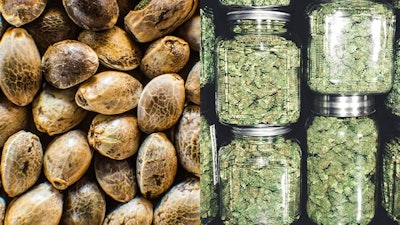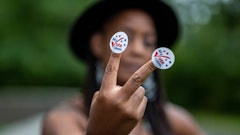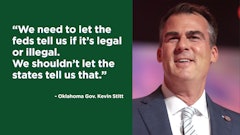
Metrc could stand to gain $12 million in the first year as Oklahoma’s sole seed-to-sale tracking contractor for medical cannabis now that an injunction has been lifted.
The Oklahoma Medical Marijuana Authority (OMMA) and Metrc, co-defendants in a class-action lawsuit filed last year, received an agreed order Feb. 25 that allows Metrc to move forward with providing the tracking system for the state’s program, according to OMMA.
The resolution comes after Viridian Legal Services, which represented more than 10,000 of Oklahoma’s licensed cannabis businesses, obtained a restraining order last April. At the time, Viridian attorney Ronald Durbin told NBC-affiliate KFOR that contracting Metrc would create a tracking system monopoly.
“[The licensees are] being required by the OMMA to follow the terms of a contract they had nothing to do with, which we believe is a violation of Oklahoma law,” Durbin said in April.
Now that the temporary restraining order has been lifted through the agreed order, all medical cannabis licensees have until May 26 (90 days) to become compliant.
The agreed order comes as a resolution between the plaintiffs and co-defendants, OMMA officials announced in a release.
“Lifting this injunction clears the single biggest roadblock to OMMA enforcing the law,” OMMA Executive Director Adria Berry said in the release. “This is a crucial step toward cracking down on licensees operating illegally or skirting the system within Oklahoma’s medical marijuana industry. Come May 27, we will focus the bulk of our enforcement authority on businesses that are not Metrc-compliant.”
According to OMMA, the agreed order signed by District Judge Natalie Mai distinguishes that:
- Licensed medical cannabis businesses have until May 26 to comply with the Metrc seed-to-sale tracking system;
- Dispensaries have until Aug. 24 (180 days) to sell or legally dispose of untagged medical cannabis products in their inventory;
- OMMA must conduct at least five online seminars by May 26 to educate licensees on the new seed-to-sale system; and
- OMMA will ensure adequate call center staff is on hand to respond to questions about seed-to-sale program implementation.
The agreed order was signed by Durbin and other Viridian legal associates.
OMMA officials said they will provide updates on the implementation of the seed-to-sale tracking system via email, their website and social media channels.
Licensees with questions about how to use the Metrc system can call the Metrc Call Center at 877-566-6506.

























